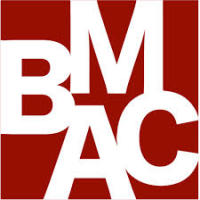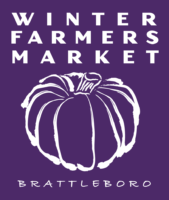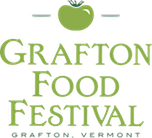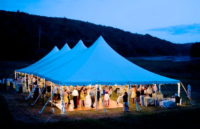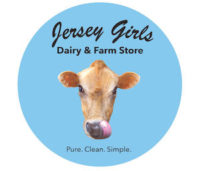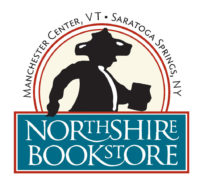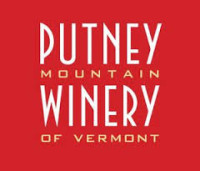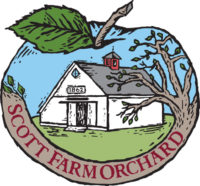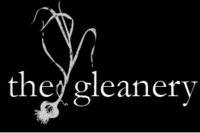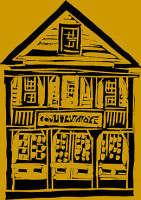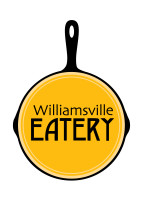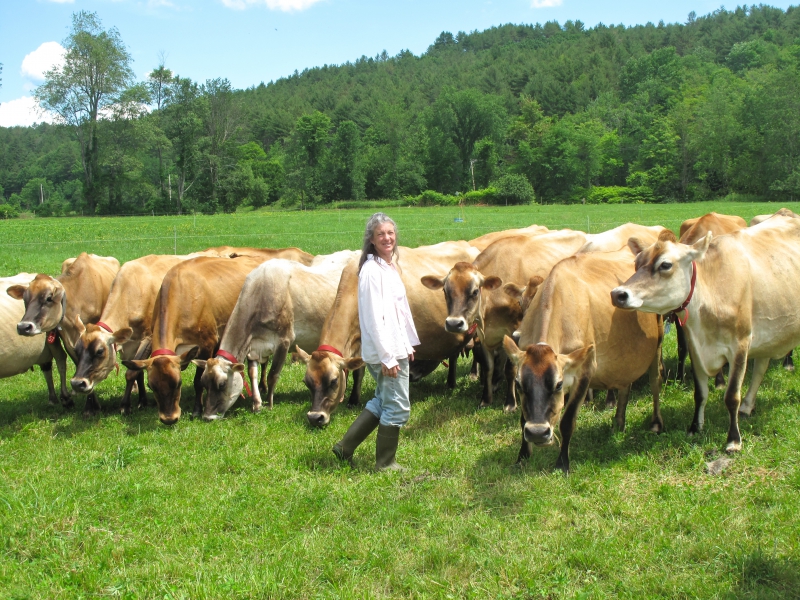
Kaiman’s cows roam outside. “Why do you think vitamins A and D need to be added to commercial milk?” she asks. “Commercial cows are inside, they don’t see the sun.”
By Cicely M. Eastman
The ladies of Lisa Kaiman’s Jersey Girls Dairy herd might very well be the happiest cows on Earth—at the very least, of Chester, Vermont. Grazing on grass growing lush on rock river bottomland of the Williams River, undisturbed by the occasional freight train and seasonal Green Mountain Flyer, the 20 to 25 registered Jerseys wander open pastureland. Lisa’s cows, loved, love life. She invites visitors to see for themselves, pet the people-friendly cows, and get an enthusiastic lesson on the health benefits of eating food straight from the farm.
Sold in the Jersey Girls Farm Store on the property are raw and pasteurized milk and cheeses made from Jersey Girls milk, including the best mozzarella; quiches baked using local products; whole chickens; award-winning Jersey Boyz veal sausage; beef; eggs; liver treats for man’s best friend; and other straight-from-the-farm foods.
“I knew our farming system was a problem,” Lisa says. “I saw it was wrong for the animals and eventually figured out it goes down the line to make us unhealthy. It isn’t a health care crisis we have; it’s a food crisis. That’s why I’m doing what I’m doing.”
A Jersey girl herself, Lisa had been traveling between the Garden State and Vermont since she was in the womb. She vacationed at the family cabin in Reading and skied Vermont’s mountains as a racer in high school.
She studied animal sciences at the University of Vermont then continued her education in Colorado in food animal medicine. Then she saw how animals grown at commercial food farms were treated, and dropped out.
“I decided I didn’t want any part of that system,” she explains.
She spent the next eight years working on dairy farms, noting what she liked and didn’t like, until it was time to start her own farm. Her farming philosophy, rooted in an excellent quality of life for her cows, was yearning to be realized.
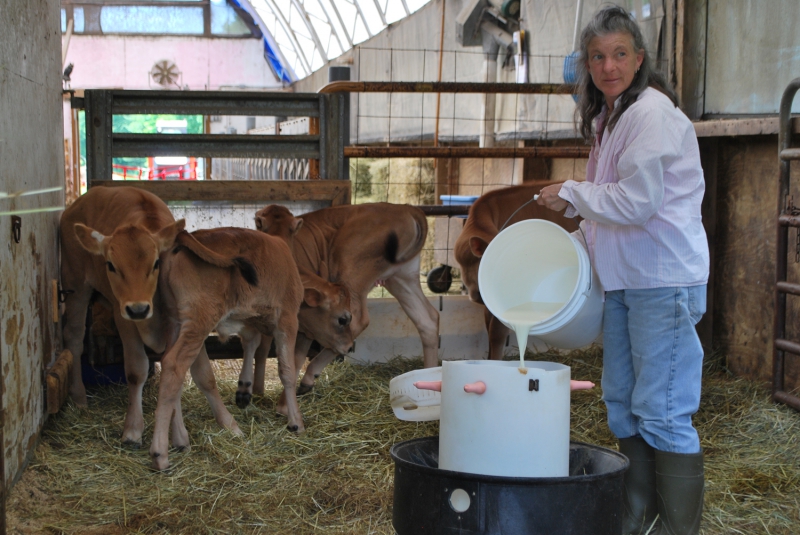
A Jersey girl herself, Lisa Kaiman had been traveling between the Garden State and Vermont since she was in the womb.
She had her eye on an abandoned farmhouse with spacious pastureland off Route 103 on Thompson Road in Chester, named for the farmer who had lived and died there. Tracking down neighbor Richard Jewett—who had purchased farmer Thompson’s land after his death to ensure the property would end up in the right hands—Lisa told him she wanted to start a dairy farm. Jewett agreed to sell.
Her first milking was on Oct. 2, 1999. Twenty years later she’s still making a go of it, milking daily at 5 a.m. and 5 p.m.
“Milking cows is one of those things that you love it or hate it, but it is Zen, and I love it,” she says.
Her girls produce 100 gallons of milk a day, much of which she sells to Woodcock Farm Cheese Company and Crowley Cheese Company. Crowley Cheese told Lisa she has the best milk around.
“Quality over quantity,” Lisa says. “All the nutrition in milk is in the fat solids. My girls produce 5 percent butterfat.”
Busy during foliage and ski season, Jersey Girls Farm is a regular stop for tourists. They’re greeted by Jamie Townsend’s colorful paintings decorating the barn and the grocery store. Regular customers come from Vermont and New Hampshire and from as far away as Quebec, where it is illegal to sell raw milk. They get it from Lisa’s grass-fed cows, which are supplemented only with non-fermented feed—never corn. Several local restaurants also serve Jersey Girls dairy products.
Lisa is an outspoken and strong advocate for drinking raw milk. Saying she feels as though Vermont is trying to regulate her out of business, she has butted heads with Vermont’s agriculture department since 2009’s passage of rigid raw milk regulations that are stricter than neighboring states’ laws.
In 2013 she was cited for improper bottle labeling by not including what Lisa called “the death sign” that warns of illness and the possibility of “miscarriage or fetal death, or death of a newborn.”
With the aid of Rural Vermont, a Montpelier-based agency that advocates for community-scale agriculture, she is continuing to bring her message to the Legislature. She’s fighting for fairer rules on mandatory annual testing for tuberculosis and brucellosis. She likes the testing, just not its frequency; New Hampshire requires it every three years. She says annual testing incurs high veterinary costs and cuts into already small profits.
She also wants the warning labels to be less onerous, an increase in the volume of raw milk smaller farms are allowed to sell, and permission for small farms to sell the product to farmers’ markets.
Against her, she says, are unwavering “biases” on the part of Vermont’s health department backed by the U.S. Food and Drug Administration and Centers for Disease Control and Prevention, which, she says, would like to see an all-out ban on raw milk. She and her customers say that although pasteurization kills a few bad bacteria it also damages beneficial enzymes and milk proteins.
Lisa, who vaccinates her calves at birth and runs a closed farm—outside cows are barred from the herd—says most raw milk bacteria play an important role in keeping the product fresh and safe.
“It helps clean out your intestines. You should get your probiotics from your food, not a pill,” she says.
Lisa also advocates eating farm-fresh grocery store products, recommending we avoid packaged alternatives.
“People get hungry and need something, but what’s available isn’t what you need,” she points out. “Our meat is nutrient-dense, so you eat less [and] lose weight.”
To make truly healthful soup, she advises, “Boil one of my chickens for a day. They are hens that have lived three years. They have the nutrients in their bones and insides that store-bought chickens only grown for three months don’t have.”
And her cows roam outside under the sun. “Why do you think vitamins A and D need to be added to commercial milk?” she asks. “Commercial cows are inside, they don’t see the sun.”
Of her milk, she says, “I do it for the moms who come give me a hug because her kids love it and for people whose health issues are helped.”
All told, Lisa says, she feels she’s been making a dent in people’s behavior.
It took her a long time to start raising bull calves for veal, but even in their brief four-month life they’re happy, kept unrestrained, and allowed to roam freely in and out of the barn.
“I had a hard time getting over it,” she admits. “In college I boycotted the sale of commercial veal. But I tried it because restaurants were interested in cruelty-free [veal].”
This powerhouse of a woman operates her 33-acre farm—and an extra 34 acres she rents for additional hay—mostly by herself. Her sole full-time employee, Sarah Stauder, has been with her for three years. While Lisa was speaking with SOVAL, Sarah was out spreading the cut hay around with a tractor so it could dry, a process called tedding.
“She is awesome,” Lisa beams.
Lisa also has the help of her two dogs. Well, only one really helps, Lisa admits: an Icelandic Sheepdog. The other is a Russian Sochi rescue.
Her plan for the farm is simply to try to keep doing what she’s doing and loves—fighting for what she believes in and all.
“I have to live with what happens to my animals,” Lisa says. “Let the cows be cows and the chickens be chickens. But I don’t understand the chickens. They have a lot of rules,” she jokes.
For more information, visit http://www.jerseygirlsdairy.com.














